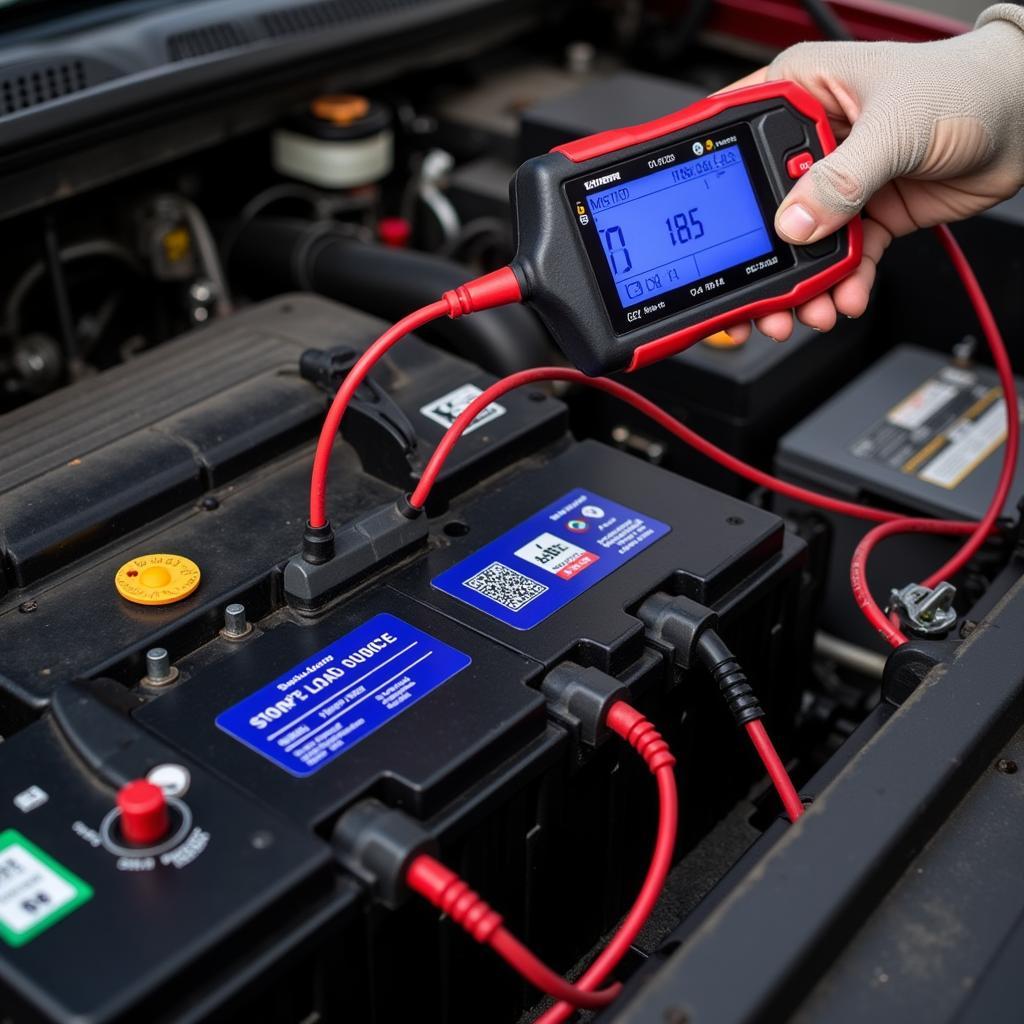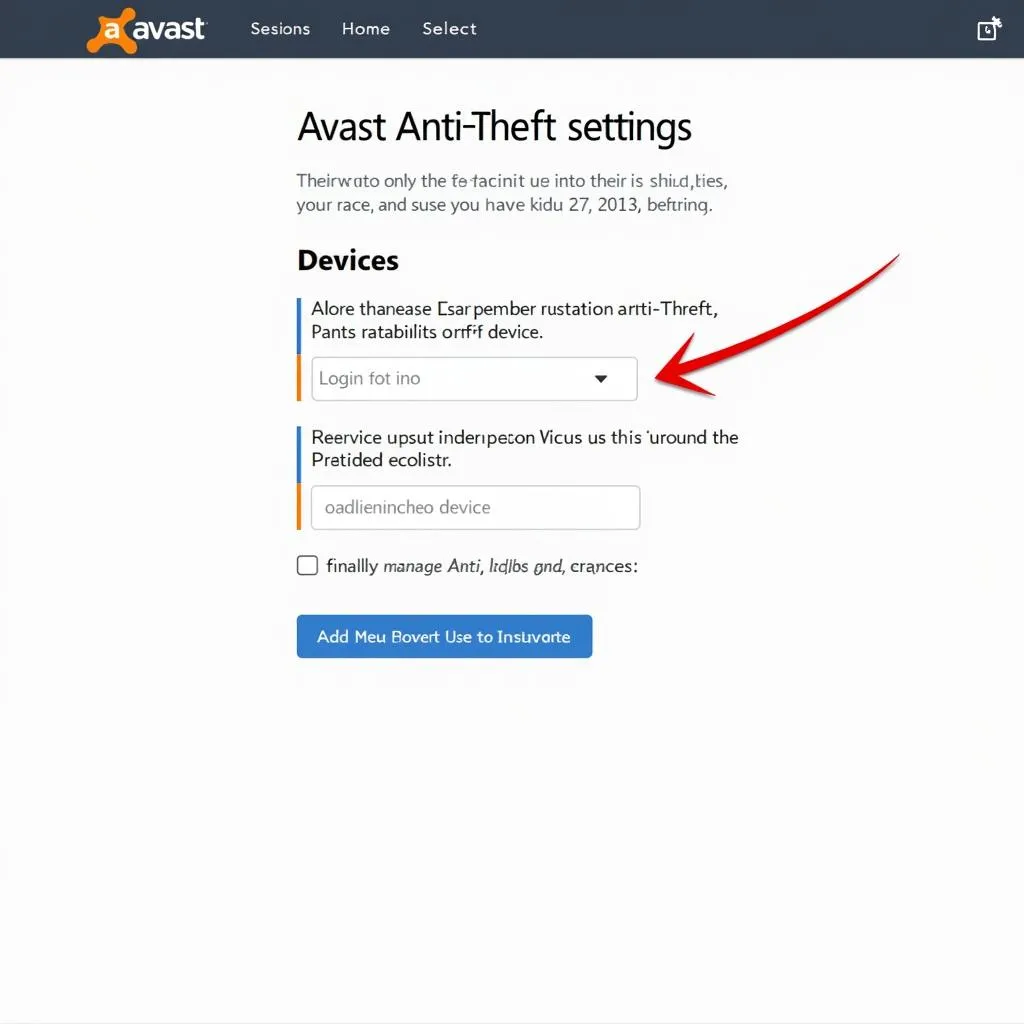A dead battery can leave you stranded, but can a bad battery hold a charge at all? The answer is more nuanced than a simple yes or no. Understanding how batteries work, the different types of battery failures, and how to diagnose them is crucial for any car owner. Let’s dive into the details.
Understanding Car Battery Basics
Your car battery is more than just a power source for starting the engine. It powers all the electrical components, from the headlights to the radio, even when the engine is off. A healthy battery stores energy and releases it as needed. But several factors, including age, temperature extremes, and parasitic drains, can affect its ability to hold a charge. If you’re experiencing issues with your Ioniq 5’s 12-volt battery, you can find more information on our dedicated page about ioniq 5 12 volt battery issue.
How Does a Battery Work?
A typical car battery uses a chemical reaction to create electricity. This reaction involves lead plates submerged in an electrolyte solution. When the battery discharges, the chemical composition of the plates changes. When you charge the battery, the process reverses, restoring the chemical balance and storing energy.
Types of Battery Failure
Batteries can fail in various ways, including sulfation, internal shorts, and open circuits. Sulfation occurs when lead sulfate crystals build up on the battery plates, hindering the chemical reaction. Internal shorts prevent the battery from holding a charge, often causing rapid discharge. Open circuits interrupt the flow of electricity, effectively rendering the battery useless. For those with an older vehicle, such as a 2002 Dodge Ram 1500, experiencing battery drain, you might find our article on 2002 dodge ram 1500 battery draining helpful.
Will a Bad Battery Hold Any Charge?
A bad battery might hold a charge, but it’s likely to be insufficient or unreliable. A partially charged battery can still power some accessories, leading to the misconception that it’s functioning correctly. However, this partial charge often disappears quickly, especially under load. Sometimes, a seemingly charged battery won’t even have enough power to start the engine. Many factors can cause a new car battery to discharge quickly. You can explore some of the common causes of dead battery in car. Furthermore, a new car battery that discharges quickly can indicate an underlying issue, as discussed in our article on new car battery discharges quickly.
Diagnosing a Bad Car Battery
Testing your car battery’s voltage with a multimeter is the most reliable way to determine its health. A fully charged battery should read around 12.6 volts. A reading below 12.2 volts usually indicates a problem. Load testing the battery, which measures its ability to maintain voltage under stress, can further confirm its condition.
How to Test Your Battery
- Safety First: Wear safety glasses and gloves when working with car batteries.
- Connect the Multimeter: Connect the red lead of the multimeter to the positive (+) terminal and the black lead to the negative (-) terminal.
- Read the Voltage: Note the reading on the multimeter.
- Interpret the Results: A reading below 12.2 volts indicates a potential issue. A load test is recommended for a definitive diagnosis. Issues with battery drain in older luxury vehicles, like the BMW E38, are not uncommon. We address this specifically in our article on e38 battery drain.
 Load testing a car battery.
Load testing a car battery.
“A weak battery often masks itself as a starting problem. Regular testing can prevent unexpected breakdowns.” – John Smith, Automotive Electrical Engineer
Conclusion
So, will a bad battery hold a charge? The answer is sometimes, but never reliably. A bad battery can lead to frustrating and potentially dangerous situations. Regular testing and proactive maintenance are key to ensuring your car’s electrical system functions correctly. Don’t wait for a breakdown. Test your battery today!
“Don’t underestimate the importance of a healthy battery. It’s the heart of your car’s electrical system.” – Jane Doe, Certified Automotive Technician
FAQ
- How long should a car battery hold a charge when disconnected? A healthy battery should hold a charge for several weeks, even months, when disconnected.
- Can a bad alternator cause a battery to not hold a charge? Yes, a faulty alternator can prevent the battery from charging properly.
- How often should I replace my car battery? On average, car batteries last 3-5 years.
- What are the signs of a dying car battery? Slow engine cranking, dim headlights, and clicking sounds when turning the key are common signs.
- Can I jump-start a car with a completely dead battery? You can try, but if the battery is completely dead, it might not accept a charge.
- Can extreme temperatures affect battery life? Yes, both extreme heat and cold can shorten battery lifespan.
- What should I do if my new battery is discharging quickly? Have your car’s electrical system checked for parasitic drains.

